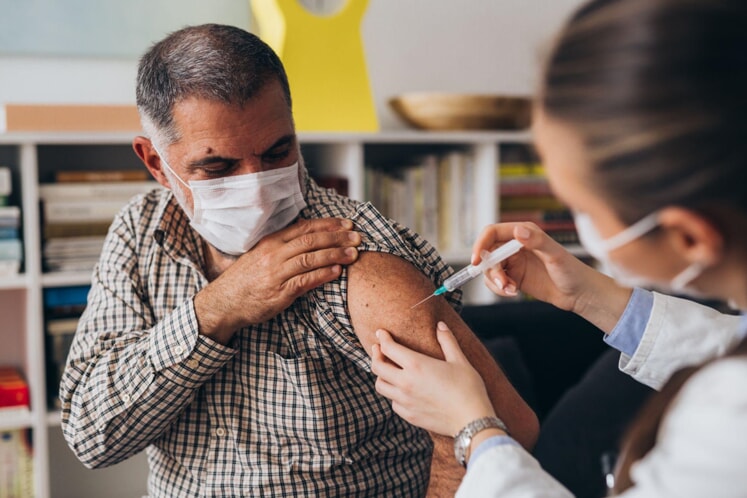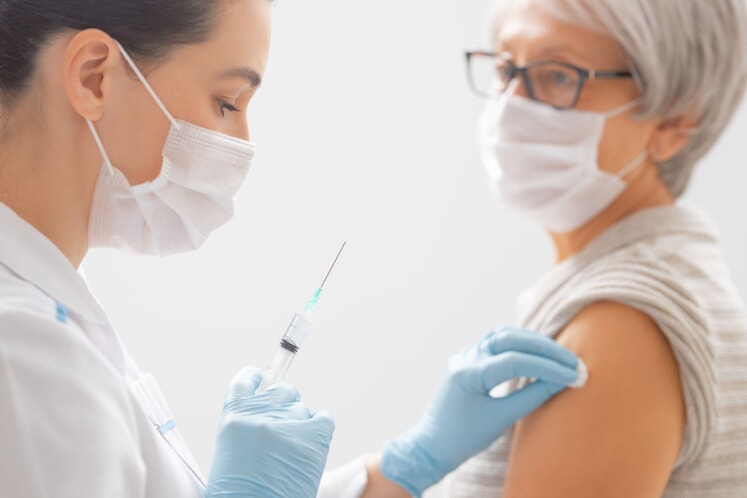Adult Vaccinations: What You Need to Know
- Category: CHMC News
- Posted On:

Tips to Keep You Healthy at Every Age
Vaccinations are not just for children. As we age, our immune systems change, and our risk for certain diseases increases. Vaccines are a crucial part of adult healthcare, offering protection against a variety of illnesses that can have serious consequences. This guide provides an overview of important vaccinations that adults should consider, along with the benefits and key information about each.
Why Vaccinations Matter
While childhood vaccinations lay the foundation for immunity, they are not the end of the story. Immunity from some vaccines can wane over time, and adults are at risk for new diseases as they age. Additionally, certain vaccines are specifically recommended for adults to protect against illnesses that are more common or more severe in older populations. Vaccines help prevent the spread of contagious diseases, protect against complications, and contribute to overall public health by reducing the incidence of disease.
Common Adult Vaccines to Consider

Flu Vaccine
The flu vaccine is one of the most important vaccines for adults. Influenza can cause severe illness, hospitalization, and even death, particularly in older adults, pregnant women, and individuals with chronic health conditions. The flu vaccine is recommended annually because the flu virus changes frequently, and the vaccine is updated each year to protect against the most common strains. Getting vaccinated not only protects you but also helps protect those around you by reducing the spread of the flu.
Tdap Vaccine
The Tdap vaccine protects against three serious diseases: tetanus, diphtheria, and pertussis (whooping cough). Tetanus can cause painful muscle contractions and stiffness, while diphtheria can lead to breathing problems, heart failure, and death. Pertussis is a highly contagious respiratory disease that can be particularly dangerous for infants. Adults should receive a Tdap booster every 10 years to maintain immunity, with one dose specifically recommended for those who have never received it, especially if they are in close contact with infants.
Shingles (Herpes Zoster) Vaccine
Shingles is a painful skin rash caused by the reactivation of the chickenpox virus (varicella-zoster virus) in the body. The risk of developing shingles increases with age, particularly in those over 50. The shingles vaccine is recommended for adults aged 50 and older to reduce the risk of developing shingles and its complications, such as postherpetic neuralgia, a condition that causes long-term nerve pain.
Pneumococcal Vaccines
Pneumococcal disease can lead to severe infections such as pneumonia, meningitis, and bloodstream infections. It is especially dangerous for older adults and those with certain chronic health conditions. There are two types of pneumococcal vaccines: PCV13 and PPSV23. Adults aged 65 and older, as well as younger adults with specific health conditions, are advised to receive both vaccines to ensure the best protection against pneumococcal disease.
Hepatitis B Vaccine
Hepatitis B is a liver infection caused by the hepatitis B virus, which can lead to chronic liver disease, liver cancer, and cirrhosis. Adults at increased risk for hepatitis B, including healthcare workers, people with chronic liver disease, and those with multiple sexual partners, should consider getting the hepatitis B vaccine. The vaccine is typically given as a series of three shots over six months.
Human Papillomavirus (HPV) Vaccine
The Human Papillomavirus (HPV) Vaccine protects against human papillomavirus, a common sexually transmitted infection that can lead to genital warts and cancers, including cervical, anal, and throat cancers. The vaccine is most effective when given before exposure to the virus, typically recommended for adolescents and young adults. However, adults up to age 45 who did not receive the vaccine earlier may still benefit from vaccination, particularly if they are at risk for new HPV infections.
Additional Considerations for Adult Vaccinations
- Travelers - If you are planning to travel internationally, you may need additional vaccines to protect against diseases that are more common in certain regions. For example, vaccines for yellow fever, typhoid, and hepatitis A are recommended for travel to certain countries. It’s important to consult with a healthcare provider or a travel clinic well in advance of your trip to ensure you receive the necessary vaccinations.
- Vaccines for Chronic Conditions - Adults with chronic health conditions, such as diabetes, heart disease, or chronic respiratory diseases, are at higher risk for certain infections and may require additional vaccines. For instance, individuals with diabetes are more prone to infections and should receive the pneumococcal and hepatitis B vaccines. Similarly, those with chronic lung disease may benefit from the flu and pneumococcal vaccines to reduce the risk of respiratory infections.
- Vaccinations during pregnancy- The CDC recommends that pregnant women get two vaccines during every pregnancy: the inactivated flu vaccine (the injection, not the live nasal flu vaccine) and the Tdap vaccine. Vaccinations during pregnancy not only help to protect the mother, but the baby too!
Vaccine Safety and Efficacy

Vaccines are thoroughly tested for safety and efficacy before they are approved for use. Most side effects are mild, such as soreness at the injection site or a low-grade fever, and serious side effects are rare. It’s important to keep up with recommended vaccines to ensure you stay protected throughout your life. If you have concerns about vaccines, discuss them with your healthcare provider, who can provide information tailored to your health needs. Do you want to learn more? Check out the CDC’s vaccination timeline to understand what vaccinations should be administered and when.
Need a Vaccination? Claxton-Hepburn Medical Center Has Got You Covered
Vaccinations are a critical component of adult healthcare, offering protection against a range of serious diseases. By staying up to date with recommended vaccines, adults can protect themselves and those around them from potentially life-threatening infections. Whether you are young, middle-aged, or older, it’s never too late to take charge of your health by ensuring your vaccinations are current. Make an appointment with one of Claxton-Hepburn Medical Center’s Primary Care Providers today to discuss your vaccination needs and take an important step toward a healthier future.

.1).png)


